‘Life can end suddenly here’: Inside Bakhmut, the city being bombed to ruins by Russia’s forces
The ferocity of the assault, and the destruction it has wrought, is due to a fevered Russian attempt to secure a strategic and symbolic victory after retreating in other battlefields, Kim Sengupta reports

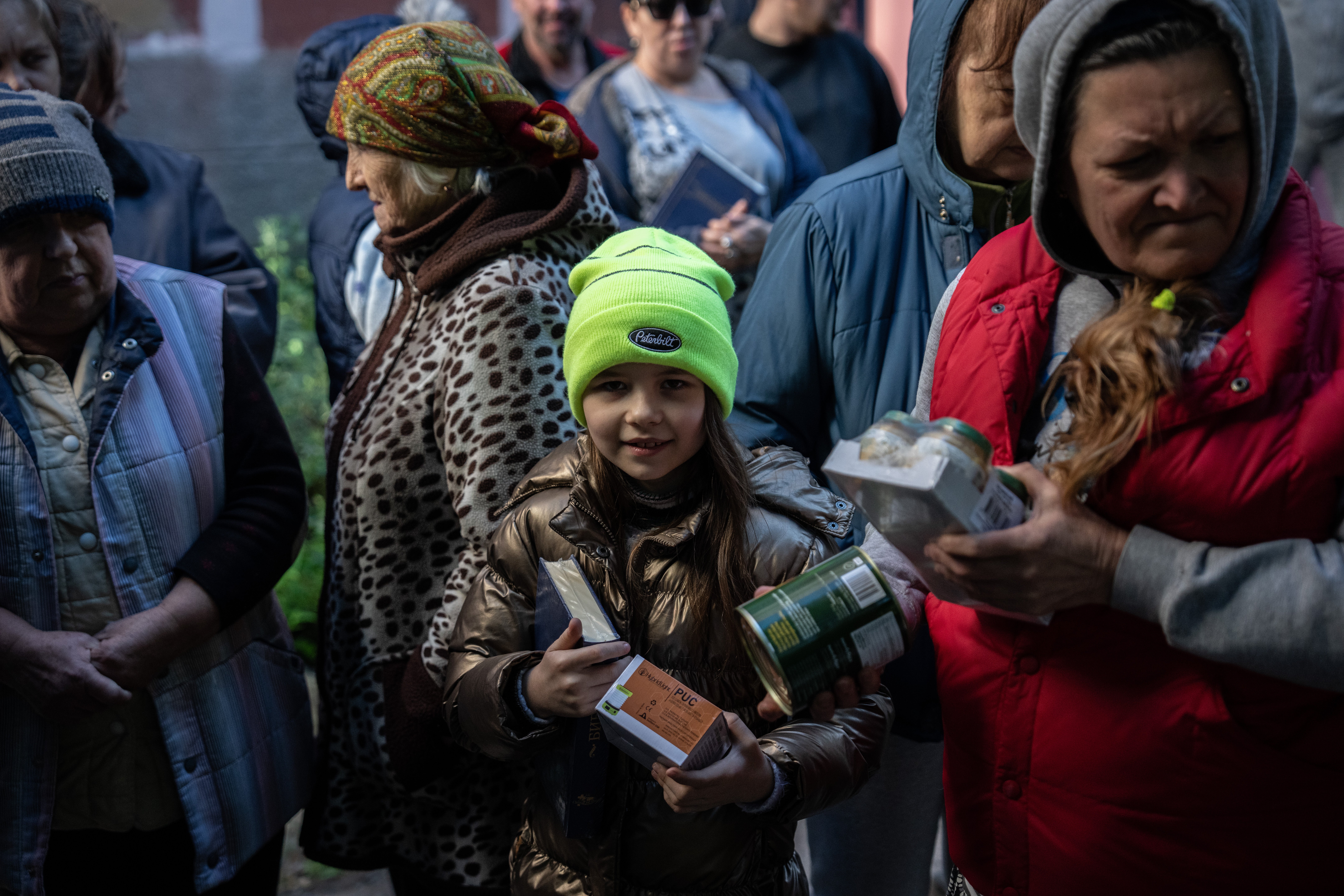
Shelling and missile strikes are so constant and intense that a lull seems unnatural. But it is in these brief periods of relative calm that residents left in this broken city emerge from underground refuges to seek sustenance.
Time is short for those who come to get food and water, as well as for volunteers handing out supplies. Russian drones fly overhead and gatherings of people have frequently been targeted for strikes. There is anxiety among those in the queue, and relief when they get to leave with their ration.
“Every time I come out, I fear something bad may happen so I try to be as quick as possible to get things. That is the way to survive,” says Kateryna Voloshina, hurrying through the rubble and gouged-out craters in the city streets.
“Life can end very suddenly here. Two people on my street have been killed; one of the bodies is still there under her fallen house. They haven’t been able to dig her up yet.
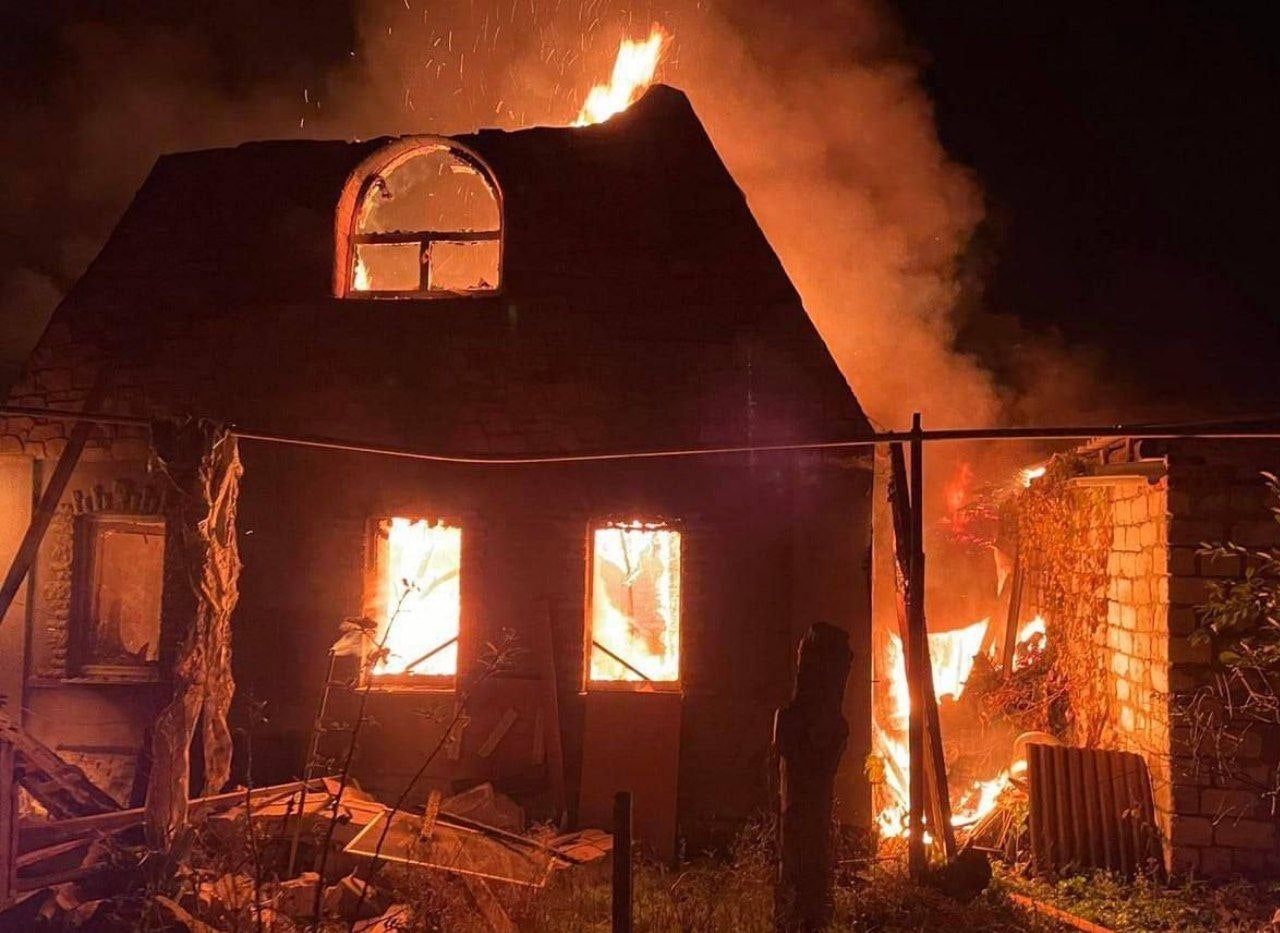
“The husband came to collect some things. It must be such a bad feeling knowing his wife’s body is still there.”
Kateryna stops to look up at the pale blue sky on a day of autumn sunshine. “It’s good to have a bit of warmth on your skin, even for a short while. But we will have to wait for a long time to enjoy that properly,” she says before trudging home to her two children and aged aunt.
As in many other cities, towns and villages in the Donbas, residents here have stayed despite the pounding attacks, rejecting the official advice to leave and sometimes paying a lethal price.
The ferocity of the assault on Bakhmut, and the death and destruction that it has wrought, is due to a fevered Russian attempt to secure a strategic and symbolic victory after retreating in other battlefields in the face of spectacular Ukrainian advances.

Moscow has ordered the evacuation of civilians from Kherson in the south as Ukrainian forces renew their offensive. In the Kharkiv and Donetsk regions, a series of Russian strongholds – Izyum, Kupyansk and Lyman – have rapidly fallen.
But Bakhmut is an exception. After taking nearby Lysychansk and Sievierodonetsk in June, the Russians are making progress here, taking a number of outlying areas and pushing towards the centre. Taking Bakhmut would open the route to the main cities in the Donbas: Slovyansk and Kramatorsk.
Ukraine’s president, Volodymyr Zelensky, has accused Russian commanders of “craziness” as they continue their assault on the city. “Day after day, for months, they are driving people to their deaths there, concentrating the highest level of artillery strikes”, he said on Thursday.
Zelensky has previously warned of the seriousness of what’s unfolding, stressing that “a very severe situation persists in the Donetsk and Luhansk regions and the most difficult is near Bakhmut, but we are still holding our positions there.”
Mercenaries from the Wagner Group, run by Vladimir Putin’s ally and confidante Yevgeny Prigozhin, are playing more of a leading role here than in other operations backed by tanks and artillery.

Wagner has fought on behalf of the Kremlin in a range of arenas including Syria, Libya, central Africa and, most recently, in the Sahel, where its soldiers replaced French forces in Mali. Their performance in Ukraine had been patchy, but in Bakhmut they appear to be doing well, especially in comparison with the poorly trained and armed Russian soldiers being thrown to the front.
“We have heard that Wagner is recruiting from prisons to serve in this country. They are desperate like all the Russian military,” says Ruslan, a sergeant in Ukraine’s 57th Motorised Infantry Brigade.
“But the ones we are seeing seem pretty experienced; we captured a guy who had been in Libya. Maybe they are on a special bonus to fight in Bakhmut; they are certainly trying really hard.

“There are also some really poor troops, mainly from the LNR and DNR [separatist Luhansk and Donetsk republics]. They are sent out in the first wave in night-time operations, as sacrifices really. The more experienced ones come in behind them, or take different routes to try to come into the city. They have been particularly active in the eastern sector.”
Wagner-led Russian forces have recently penetrated the southern suburbs of Ivanhrad and Opytne. These were retaken by the Ukrainian 93rd Brigade, which has rushed to this front, but some of the area has slipped back into enemy hands.
Ukrainian commanders acknowledge that the defence of Bakhmut, with the dangers its fall would entail, is a distraction from the offensive in the south where the Russians are fortifying Kherson.
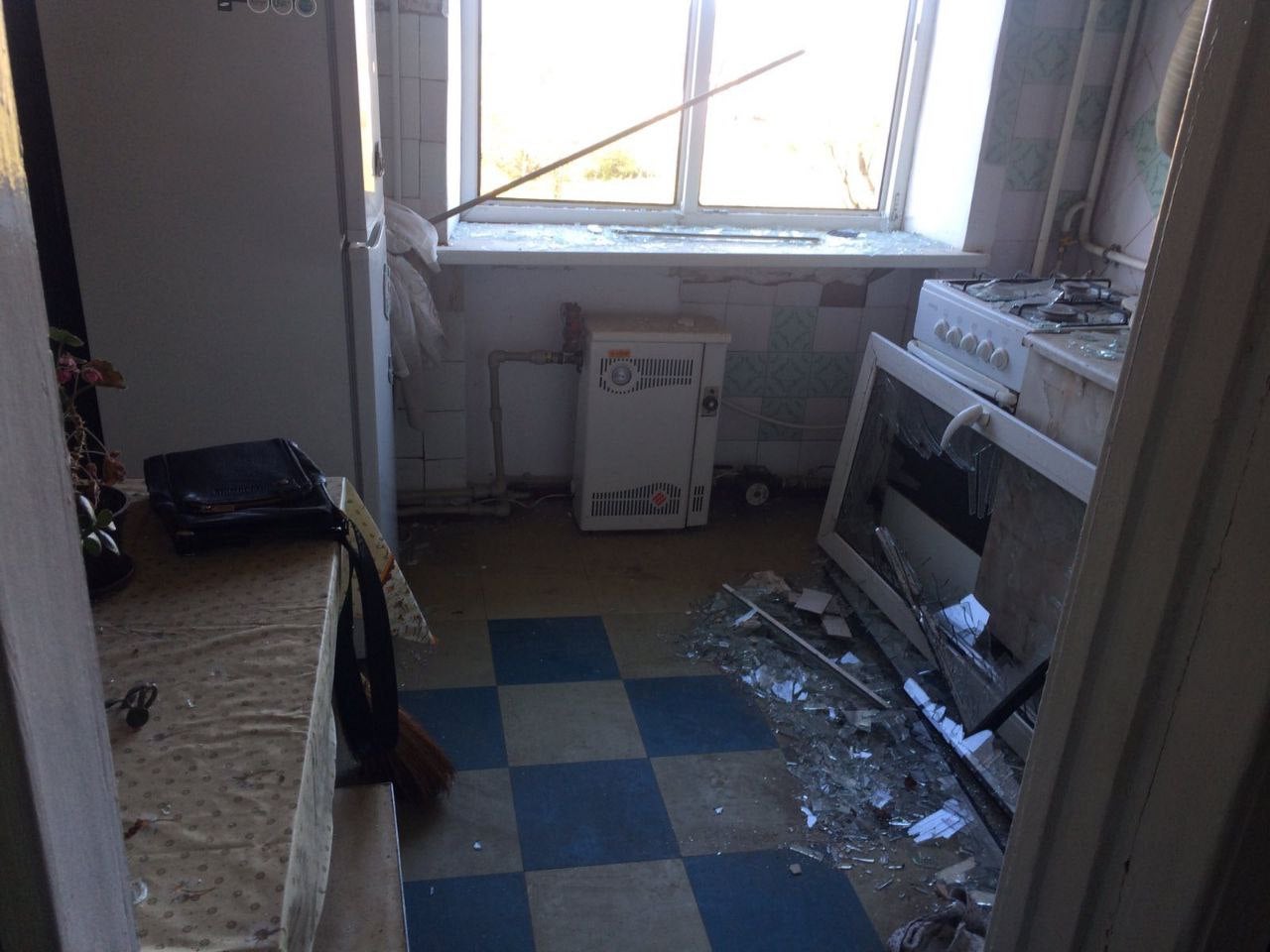
However, despite making incremental advances, Prigozhin – Wagner’s boss and friend of Putin – is cautious about claiming triumphs.
“The situation near Bakhmut is difficult,” he said on Telegram. “The Ukrainian troops are putting up decent resistance, and the legend of the fleeing Ukrainians is just a legend. Ukrainians are guys with the same iron balls as us.”
Prigozhin has been publicly scathing about the performance of the Russian military in the war, and the success of his fighters would help him accrue the political power in Moscow. But is he now preparing excuses for possible failure? Or is there genuine admiration for Ukraine’s fighting spirit?
But Ukrainian resistance comes at a cost. One army medic, exhausted from working endless hours under fire, speaks of having to deal with between 100 and 120 injuries a day. “That is a lot of people who have to be evacuated,” he says. “But there is some good news: we can save around 90 per cent of them now, and that’s a lot better than in the past.”
The attrition rate has certainly improved for the Ukrainians. The number being killed when The Independent was reporting from the Donbas in the summer was higher than 100 every day, with around another 200 injured.
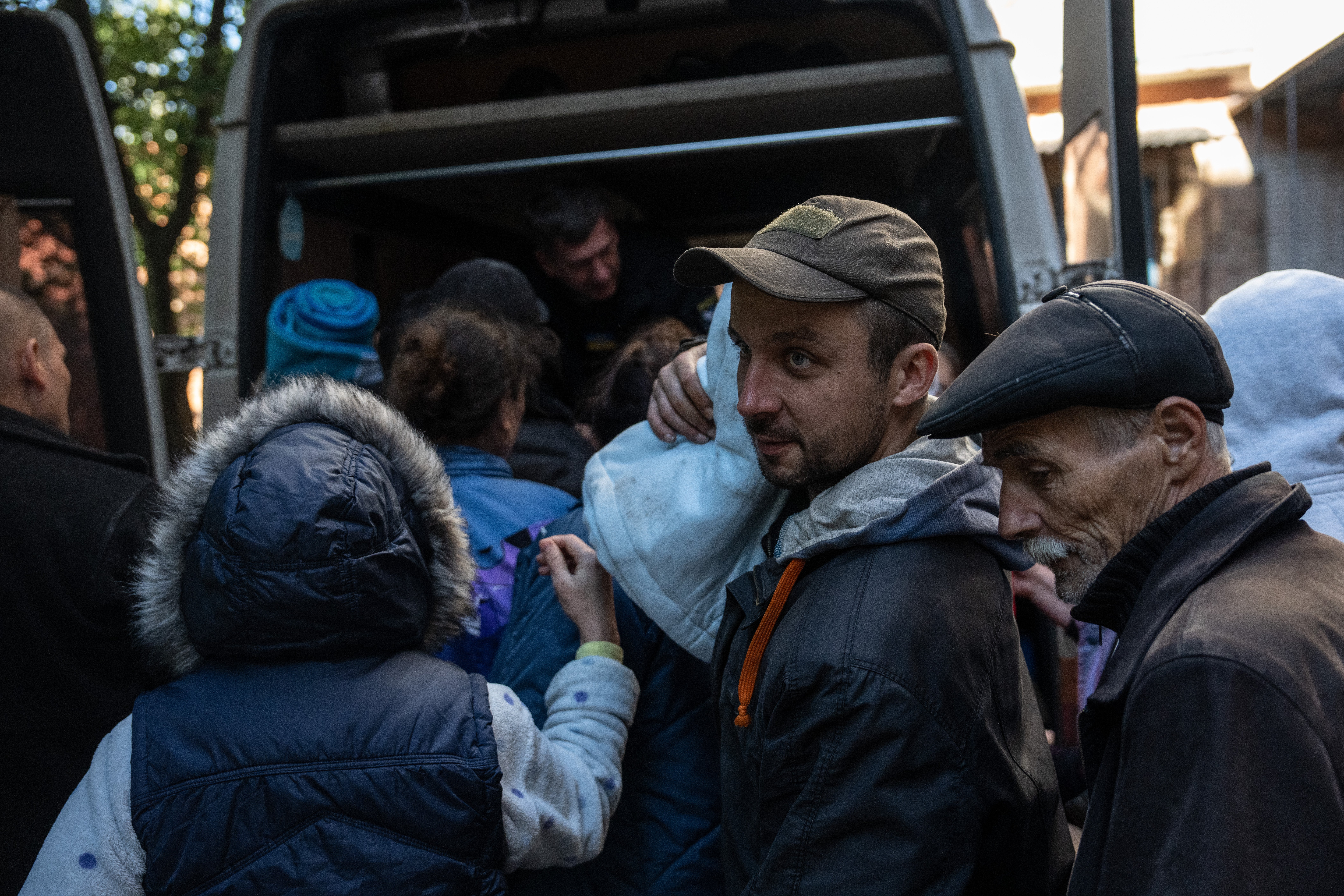
But the relentless waves of attacks are proving debilitating for many of the soldiers. “Sleep is what I miss the most. When you are so tired you start making mistakes, that is what I’m most worried about – putting myself and my mates in danger,” says a gunner with the call sign Zodiac. The 37-year-old former construction worker was hospitalised for a month with shrapnel injuries to his right leg. “I came back to find they [the Russians] took some ground. But they are also losing a lot. Their commanders must be under orders from Putin to take this place at any cost,” he reflects.
Since The Independent’s last visit, much of Bakhmut has been destroyed in artillery and tank barrages. What used to be landmarks – the Palace of Culture, the football stadium, the main hotel, a machine parts factory – have been reduced to charred shells, as have the winemaking facilities for which the region is well known.
The population of 75,000 has fallen to around 10,000 since the war started. With no power, and temperatures set to fall below zero in the coming weeks, volunteers have been bringing in wood-burning stoves for those staying on.
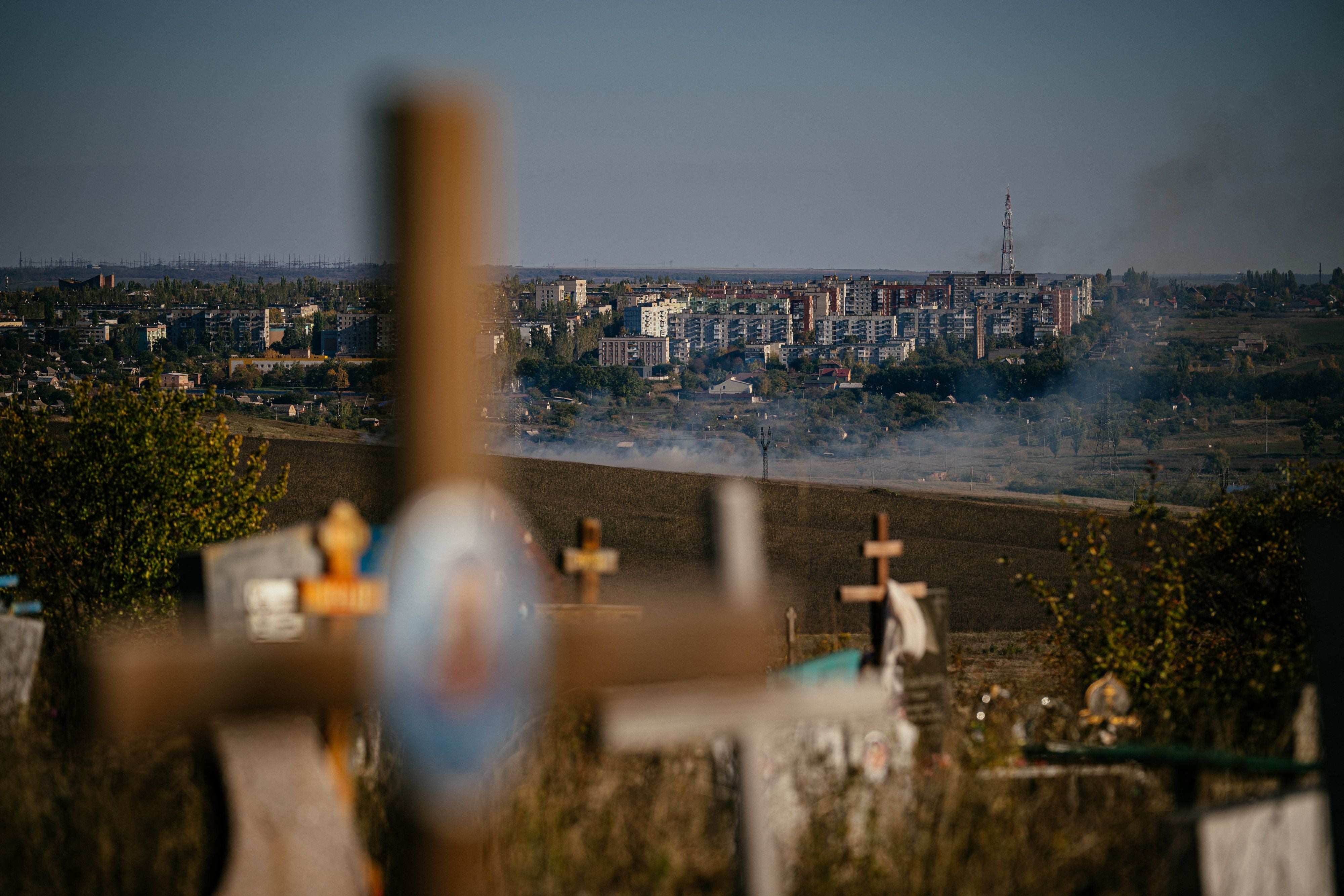
Sitting huddled in a fraying blanket, 68-year-old Oleksandr Zhuk stares out of his window at what used to be his pride and joy, his prize-winning garden. It is now a piece of burned ground strewn with debris following a missile strike two months ago.
“I was going to deal with the flower beds, which have stopped blooming, and then prepare for our autumn vegetables,” he says. “The grass needed to be worked on as well. There was so much to do, and that was going to keep me occupied. But now that’s all gone.
“But these are just things, you know; flowers and plants are beautiful, but just things. So are the buildings we have lost. A city is about people, and people who have left will return.
“I have children in Dnipro. They will come and live here again one day, I am sure, and then we will get our Bakhmut back again.”
Join our commenting forum
Join thought-provoking conversations, follow other Independent readers and see their replies
Comments
Bookmark popover
Removed from bookmarks